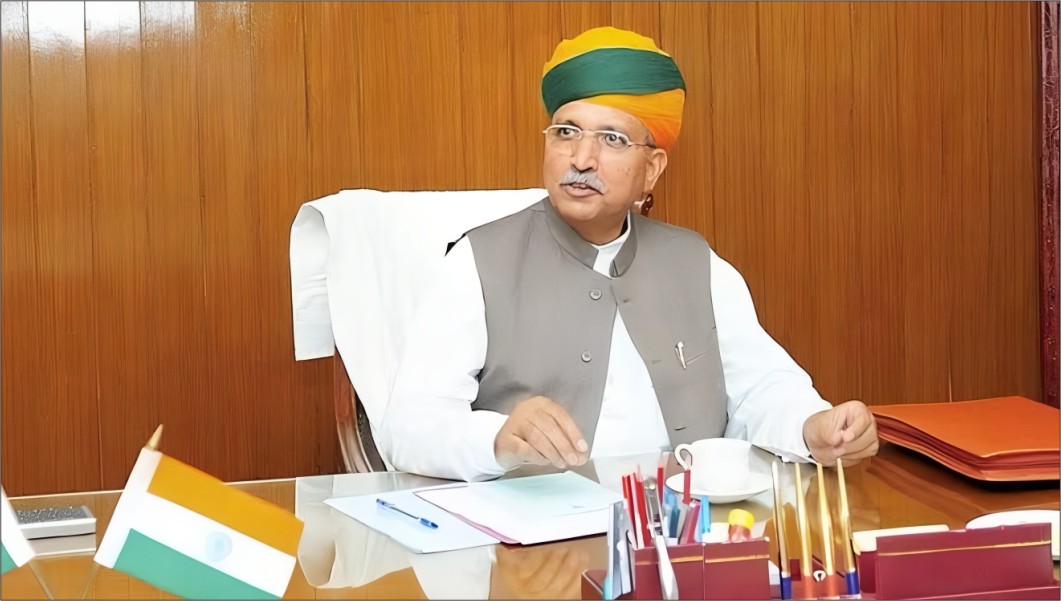Chandigarh, August 22 (Jaswinder Singh Azad)- The word Monsoon evokes joy and pride across Bharat, symbolizing innovation, renewal and giving an immediate boost to the nation’s economic engine. India’s geographical advantage, coupled with abundant rainfall, rejuvenates its rivers and expands water resources across the nation. It marks a season of progress, and when paired with Independence Day celebrations, it spreads a unique flair of patriotism. From the Red Fort, the Prime Minister’s address once again offered a blueprint for aspirational citizens, charting the path toward the larger goal of building a Viksit Bharat.
At the outset of this special Monsoon Session of Parliament, the Prime Minister called it a session that would bring glory to Bharat. The bravery of Indian soldiers, the success of Operation Sindoor, decisive blows to Pakistan-sponsored terror factories, and the suspension of the Indus Waters Treaty (IWT)—all stand as testimony to Bharat’s strong will, leaving an indelible mark on the national psyche.
Yet, despite the government’s openness to discuss all issues, the opposition chose obstruction—reducing debate to political gimmickry at the cost of larger public interest. The nation has long borne the burden of Congress’s recurring habit of placing self-interest above national interest. From the tragic partition to the costly failures of Nehruvian diplomacy, history reveals how these choices weakened the very idea of Bharat.
A closer look at the Indus Waters Treaty (1960) tells a telling story of appeasement and over-generosity—made at the expense of the people and the country’s development—which steadily hampered national growth prospects. It remains deeply ironic that India’s developmental sacrifices were dictated by a political calculus that placed Pakistan’s interests above the welfare of its own citizens.
India was compelled to cede control over significant western rivers
At its core, the world bank mediated IWT allocates the waters of the Indus River system, which originates largely in India, in a manner heavily favouring Pakistan (80:20). India was compelled to cede control over significant western rivers the Indus, Chenab, and Jhelum thereby forfeiting extensive water resources that could have transformed vast arid and drought-prone regions in Punjab, Haryana, Rajasthan and Gujarat. Had the national interest protected, the well managed water infrastructure could have strengthened the entire developmental dynamics of the region.
However, the hopes that this significant sacrifice would yield broader diplomatic dividends proved illusory. The procedural handling of the treaty further compounded these concerns. The treaty was signed on 19th September 1960, but was placed before Parliament two months later, in November, and that too, for a token discussion of mere two hours. As soon as the facts of the treaty were made known, the headlines of leading newspaper expressed adverse fillings after examining the various aspects of this treaty. This hasty parliamentary treatment of such a momentous agreement raised serious questions about democratic oversight, transparency, and malign intent of the then leadership.
Indus Water Treaty faced significant opposition within India’s Parliament
Despite this limited parliamentary scrutiny, the Indus Water Treaty faced significant opposition within India’s Parliament. Former PM Shri Atal Bihari Vajpayee, then a young MP warned that the Prime Minister Nehru’s argument that succumbing to Pakistan’s unreasonable demands would establish friendship and goodwill was fundamentally flawed.
The parliamentary debate on 30th November 1960 reveals that treaty was criticised across the party line. Most members criticised and blamed the government for appeasement and surrender to Pakistan for letting down the Indian interest. Congress MP from Rajasthan Mr. Harish Chandra Mathur, Ashok Mehta, A.C. Guha, Communist Party MP KTK Tangamani, Sardar Iqbal Singh , Brijraj Singh categorically raised genuine concerns and visible repercussion of this failure of this water diplomacy. In toto the treaty can be summed as a “one-sided give, not give-and-take.”
In this context, it was ironical that the during the reply in Lok Sabha Prime Minister Nehru questioned and even undermined the wisdom of Hon’ble MPs. He replied that the parliamentary criticism was based on the lack of understanding of the fact and consideration involved. He (Nehru) further went on to say that “I am distressed that a matter of this importance ……a matter which is concerned not only the present but the future-should be treated……so lightly and casually and in such a narrow-minded spirit.”
The treaty distorted the India’s interested was a definitive milestone for Pakistan
The treaty distorted the India’s interested was a definitive milestone for Pakistan. Ayub khan in a public broadcast confessed that legality and merits of treaty was against Pakistan, but Nehruvian diplomatic failure over this made an edge to Pakistan. During his Rawalpindi broadcast on 4th September 1960, Ayub khan said that “The solution that we now got is not the ideal one….but this is the best that we could get under the circumstances many of which, irrespective of merits and legality of the case are against us.” These revelations are still posing the questions the motive behind putting the national interest in secondary stage.
As Niranjan D Gulati, recounts in his book “Indus Water Treaty : An Exercise in International Mediation” that, on 28th February 1961, Prime Minister Nehru himself acknowledged this disappointment, stating: “I had hoped that this agreement would open the way to settlement on other problems, but we are where we were.” The stark contrast in post-treaty development further underscores the agreement’s inequitable nature. The Complacency of Nehru and setting aside the national interest was prevailed overtime. In February 1962, in a interview to the Washington Post, Prime Minister Nehru called signing of IWT “a big step in advance and really that settlement was by far more important than the territorial issues (of Kashmir)….”
This policy of appeasement proved detrimental to national progress on multiple fronts
Despite clear warnings, the Congress leadership—driven by a quest for peace and international approval—chose diplomatic expediency over India’s long-term water security and prosperity. This policy of appeasement proved detrimental to national progress on multiple fronts. The anticipated psychological and emotional gains from the treaty never materialized; instead, it brought misfortune in the form of wars and persistent cross-border tensions. The rigid water-sharing arrangement curtailed India’s ability to harness its natural resources to fight drought, expand irrigation, and strengthen agriculture in vulnerable regions. Power-hungry dispensations felt no obligation to build self-reliance, leaving India weakened. The treaty, in effect, was a water diplomacy failure for India and a political triumph for Pakistan.
Now, as the Modi Government takes yet another decisive and bold step to correct this historic blunder
Now, as the Modi Government takes yet another decisive and bold step to correct this historic blunder. India has, in exercise of its sovereign rights under international law, placed the IWT in abeyance until Pakistan credibly and irrevocably abjures its support for cross-border terrorism. Prime Minister Modi Ji’s categorical call carries a stern warning to those undermining national interest: “Terror and talks cannot go together; water and blood cannot flow together.” This measure marks a bold and historic departure from earlier policies.
It is not merely a diplomatic recalibration but a firm strategic assertion of India’s sovereign right to safeguard its resources and interests of farmers and livelihood opportunities of associated stakeholders—placing the principle of “Nation First” above all in the face of persistent cross-border threats from Pakistan.
The suspension of the Indus Waters Treaty goes beyond diplomacy—it reflects India’s resolve to achieve Viksit Bharat@2047. By reclaiming control over its water resources, Bharat can drive climate-resilient infrastructure, strengthen irrigation, and boost industrial growth—key to becoming a developed nation. This decision marks an end to compromises imposed by outdated agreements and establishes water sovereignty as a cornerstone of progress. It is a bold step that aligns seamlessly with the mission of self-reliance, sustainability, and inclusive growth.
– Arjun Ram Meghwal,
Union Minister of State for Law and Justice (I/C)
and Minister of State for Parliamentary Affairs,
Government of India

